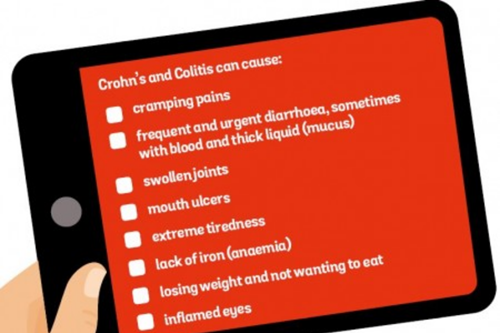Hearing you have Crohn’s Disease, Ulcerative Colitis or Microscopic Colitis can be overwhelming, but there’s lots of support out there. Life will change, but it can also improve - and we’re here to help, every step of the way. Our practical to-do list will help you get started.
As well as the words 'Crohn's' and 'Colitis', you may also hear the term 'IBD' a lot. This stands for Inflammatory Bowel Disease. Crohn's Disease and Ulcerative Colitis are the two main forms of IBD.
If you think you might have Crohn's or Colitis but haven't had this confirmed yet, see our information on How to get a diagnosis.
If you’re a child or young person with Crohn’s or Colitis, see JJ’s tips on coping with Crohn’s or Colitis.




